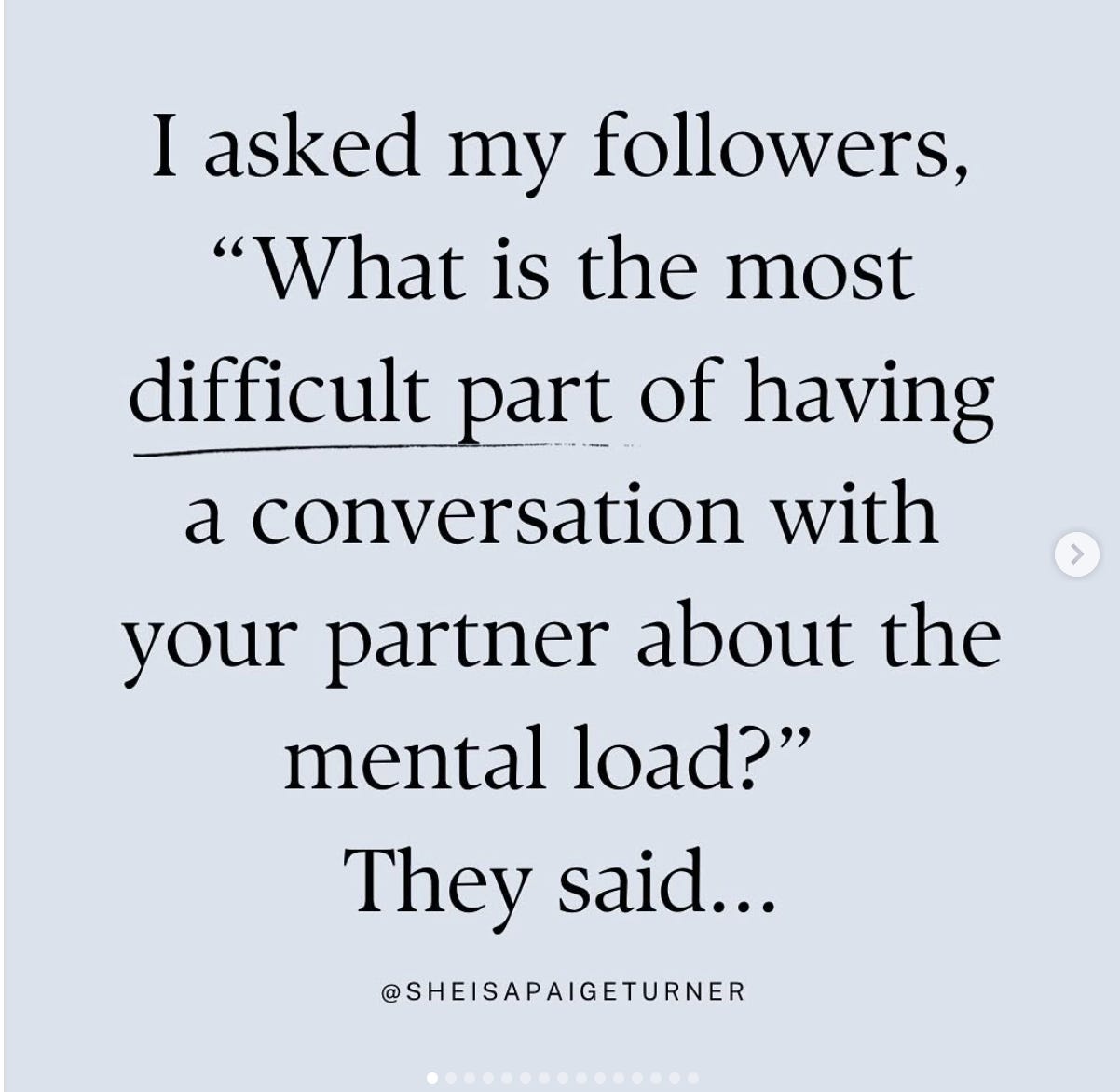The Reason People Aren’t Having Kids…
According To Nobel Prize Winning Economist Claudia Goldin

I saw this article from The Washington Post last month that I thought might be an interesting read for this group. It’s an Opinion piece from Heather Long, a single mom by choice, which is actually sort of irrelevant for this piece but a topic I’ll cover in the future.
A Nobel Prize Winner Decodes Why People Aren’t Having Kids
I don’t plan to make a habit of sharing a lot of content from The Washington Post now that Besos has basically delegitimized it. But I think Heather Long’s piece is a good one and worth reading and discussing. I feel like maybe I shouldn’t publicly admit this, but I didn’t read this article with a subscription… I used a site to get around the paywall. I know, I’m a traitor to the community I aspire to join! Eek. But if you’re looking to read it and have the same issue, that’s what you can do.
I’ll start by saying that nothing about it is surprising at all. In fact, like me, you may read it and be like: “Well yeah, I could have told you that!” But it’s nice to see it in writing, backed by research, and spoken by someone society has deemed officially super smart.
Claudia’s research essentially says that the main reason for the decline in fertility rate is men not pulling their weight at home. After WW2, there was a huge acceleration of women joining the workforce, and the culture has simply not caught up with this in the home. Women are feeling that they can’t take on any more workload by adding children, so they’re opting out.
For any men reading this, if your female partner is leaning “No” on having kids, this doesn’t necessarily mean she’s actively avoiding it because you aren’t emptying the dishwasher or scrubbing toilets enough. There could be many other reasons at play here too, but if she’s pulling more of the weight at home, it’s likely contributing to the overall picture, consciously or subconsciously.
I’m noticing an uptick in this kind of messaging on social platforms too in the last few years. Single women saying how happy they are not to have a husband they have to raise and kids they have to do all the work for alone. Mothers completely overwhelmed and drowning, complaining about how hard it is to have to “do it all” and feeling so alone.
Girls and women in their teens, 20’s, 30’s and beyond are internalizing all the content out there and it’s shaping their perspective on motherhood. The dreamy fantasy of the past has crumbled and in its place is a warts and all image of what it is to become a mother in today’s society. It’s not as enticing as it used to be, and it’s starting to become a hard sell for many.
What can we do about this? Last April I wrote this piece about the New York Times bestseller Fair Play by Eve Rodsky, which is an incredible resource for figuring out how to make things more equitable at home. You can even find the “playing cards” on Amazon if you and your partner want to try the exercises she recommends for managing a household’s workload. It’d be a great read and step for anyone wanting to move forward with parenthood, but I also think it’s incredible to do even if you plan to remain childfree. We still need to fight for better household equity and to change the social norms for future generations, even if we aren’t the ones raising them.
I’ll admit, I bought the cards and they still remain unopened on my dresser. There’s a lot of fear that this will end in a fight where I’m agitatedly declaring “See? I do everything around here!”... which isn’t true, but we like to talk in absolutes when we’re frustrated, don’t we? I have a really great partner who does a lot, but even still, I know I tend to pull more of the weight at home, especially when it comes to carrying the mental load.
It’s scary to type that. He reads this! I’m certainly not trying to embarrass him, make him look bad, or insinuate he’s thoughtlessly dumping all the work onto my plate. He’s not. As I said, he does a lot, but even still, I don’t think it’s as equitable as it could be. And if the gap in our household is somewhat narrow and I’m stressing about this, I can only imagine how women in households where the gap is wider are feeling.
It’s not unique to my husband, or any of our male partners, though either. The thing is, this is a societal issue that is true in most heterosexual relationships. But I think that’s part of what keeps women stuck. Women often talk (complain?) about this openly and quite regularly with their friends, but when it comes to saying this to our partners, it’s really hard.
I saw this post from Paige Connell on Instagram and scrolled through the slides awhile back, that I think hits the nail on the head for most partnered women in opposite sex relationships. It won’t let me share the link for the actual post, so we’re going screenshots!












Like I said, this is not the fault of our individual partners. It’s not necessarily any kind of moral failing on their part or criticism to who they are as people. It’s a socialized issue that we all play a part in, like it or not. It has a lot to do with the dynamic our parents had and what we internalized as children about the roles of men and women at home.
It’s sort of like the cultural moment that anti-racism had in 2020. There was this big national conversation about how even if you aren’t overtly racist as a white person, you still may have unconscious biases or benefit from systems that are based in racism. Things still aren’t equal. We’re all born into these dynamics and don’t choose them, so in that way it’s not our fault, but it is our responsibility to do what we can to correct it in our lifetime.
It is possible for us to change this too, but what it will take is for men, as a whole, to see the issue, agree it’s an issue, and want to step up to solve it with us… to see the value for society and for women in solving it. Women cannot change this alone. It’s in the hands of men.
“It won’t change unless the guy’s expectations about what he’s ‘supposed to do’ changes,” Goldin said. “There’s some evidence that individual men believe in couple equity more than they act on it because they believe other people don’t feel this way.”
Men need to believe that other straight men will be doing more too. If the culture makes them feel like they’ll be “gay” or a “cuck” for helping more at home, then it won’t ever happen. And toxic masculinity can’t keep pumping up men to give their whole lives to their jobs as if being a provider is their only value. Corporate America needs to make it feel safe for men to have work-life balance, and like they won’t be missing out on promotions and career advancement for doing so… a fate many women have already been experiencing after becoming mothers that’s been dubbed “the motherhood penalty”.
If the government wants to freak out about lower fertility rates, well good! They’re the solution here. They need to mandate paid leave for all parents, provide subsidized child care, and take other similar actions that support families. For this to be passed through in the US government, male lawmakers (Republicans mainly) need to see this as important and the solution to the problem… not outlawing abortions or limiting birth control access. Don’t force women to have children, incentivize them to.
Goldin’s research shows this correlation between household work and fertility rates globally. While the US isn’t as bad as I expected in comparison to places like South Korea, we still have some work to do. It’s interesting though that countries like Sweden and Denmark are significantly better than the US when it comes to the workload, but their fertility rate from 2019 is also at 1.7, like ours.
I’d be curious what she’d have to say about that considering those countries also offer better time off and child care for women. Sweden offers 480 days of paid leave for parents and Denmark offers 24 weeks of paid maternity and paternity leave. The US currently has no national paid leave mandate, and women are at the mercy of the company they work for. FMLA will guarantee your job for 12 weeks, but doesn’t come with any mandated pay. It would seem their fertility rate would be higher than ours based on the trend she’s seeing. I wonder why it’s not.
Ultimately this research is one piece of a big puzzle. This research shows an undeniable correlation, but this issue is quite complex, and I know there’s a lot more to it than simply this. It doesn’t account for climate change, maternal mortality rates, and other issues that keep women on the fence and complicate this decision.
What’s your take? Let me know your thoughts in the comments!
Valerie
Still stuck on the fence? It’s time to get coached!
You can email me to learn more at motherofadilemma@gmail.com, or you can schedule a free 30 minute consultation call with me here.
Follow along on TikTok and Instagram for more helpful videos and content.





Does anyone remember when all the fratty broey guys were wearing rompers?? I want a where-are-they-now update about the creators of RompHim. I feel like they're the guys we need to get dudes super excited about domesticity and stuff.